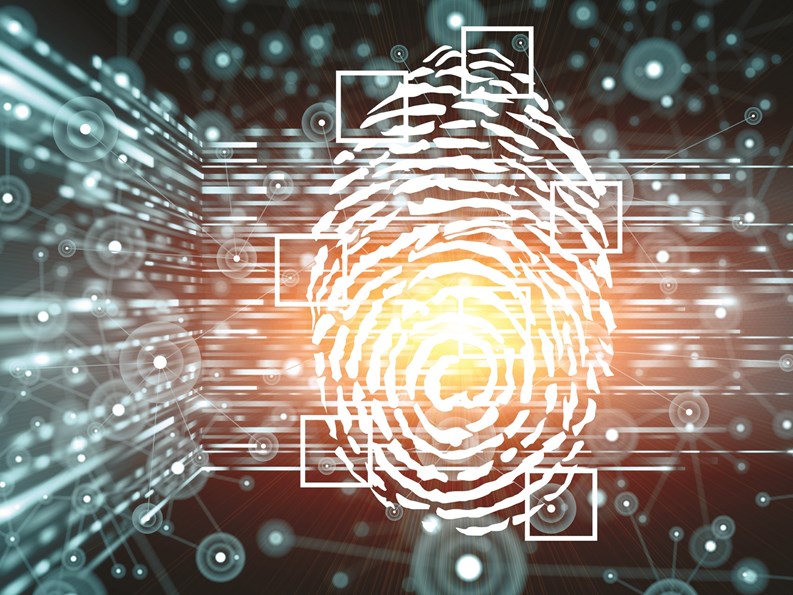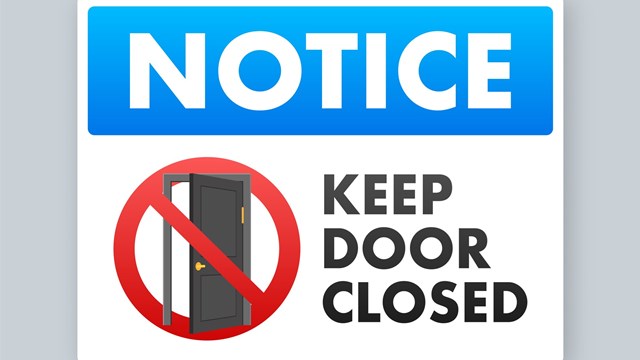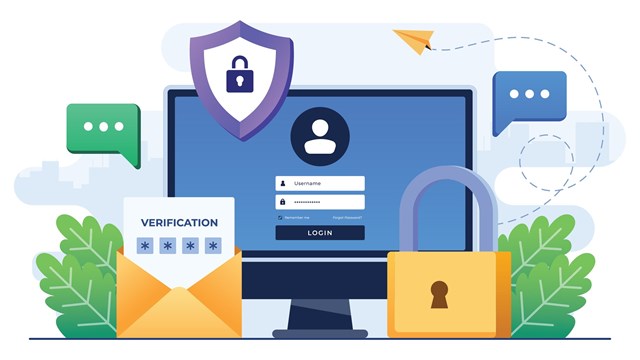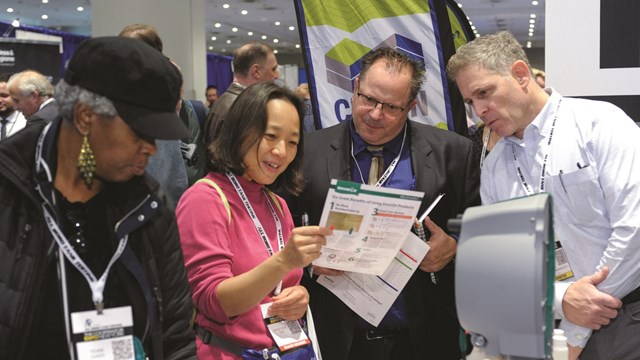Neighbors helping neighbors. It's a simple adage and one that holds immeasurable power when it comes to keeping communities safe. Over the years, neighborhood watch groups have grown in number, having a positive impact on the reduction of crime in communities throughout the country.
According to the National Neighborhood Watch Program, burglaries nationwide decreased more than 30 percent throughout the 1990s, thanks to communities taking a more active role in stopping crime before it starts. "People expect to live in their neighborhoods and have peace and quiet," says Russell Mitchell, neighborhood watch coordinator for the Onondaga County Sheriff's Office in Syracuse, New York and a member of the National Neighborhood Watch Advisory Committee. "That's what we advocate."
And people who live in the seemingly placid suburbs of New York City aren't immune to crime just because they've got lawns and trees in their backyards. According to Detective Lieutenant Al Troianello, who does community outreach and neighborhood watch organization for the sheriff's department in Madison, "Crimes in the cities tend to be crimes against persons—like assaults, or robberies, which law enforcement defines as forcibly taking property from someone, as opposed to breaking into a home and stealing something. Here, we're a suburb of New York City. Crimes here are crimes against property, and car thefts, or people stealing auto parts."
Although it's difficult to measure the effectiveness of neighborhood watch groups against these types of crimes in terms of solid statistics, watch programs are undoubtedly effective, Mitchell says. "I know it's working because I get calls from people after they've made 911 calls and reported problems. When things are happening in our neighborhood, people tell me—and I know they are watching out for things."
Raquel Rivera of the Waldo Avenue Neighborhood Watch in Bloomfield knows her community's program is working too. In the two years since they began, she says they've thwarted three would-be robbers in their two-block neighborhood. "Before we began, there had been a lot of robberies and thefts and we got very tired of it," she says. "We thought that maybe if we got in each other's business, it wouldn't happen as often. And that's been the case."
Westgate Square, a 400-unit condo association in Edison, has also enjoyed success with its fledgling watch program.
"We had some houses burglarized and people wanted to try to do something to prevent that from happening again," says Westgate Square managing agent Gail McDermid. "We've got a healthy handful of people involved in our program, which started about a year-and-a-half ago with the goal of getting one person to watch [one other neighbor's] courtyard. I would say it's had a positive effect. People watch out a little more for each other, and if we have a problem, it's good to know that we have people to help get the word out on what to do."
Safety in Numbers
According to the National Sheriffs' Association, neighborhood watch programs work because they make life difficult for potential criminals in a number of ways. Depending on the scope of the program, watch associations can do everything from encouraging homeowners to get security inspections and upgrade locks, security hardware and lighting to organizing phone trees for quick neighborhood alerts. Watch groups also ward off potential criminal activity by keeping the neighborhood well-marked with watch signs and stickers on homes—the kinds of things that makes thieves think twice.
There is also power in numbers. A neighborhood watch group not only keeps criminals at bay, they also can work to make new neighborhoods safe by lobbying home builders to use effective door and window locks and provide outside lighting. "These groups can get things done when it comes to matters such as stop signs to slow traffic in the neighborhood," says Mitchell. "It gives people a collective voice."
Mitchell says that the key to effective watch programs is information. He produces a monthly newsletter for his neighborhood that includes neighborhood watch tips. "We have 326 homes in our area and they're all participating by reading the newsletter and learning safety tips."
First Watch
For those interested in starting their own neighborhood watch group, the process can be surprisingly simple. First, form a small planning committee to discuss the needs of the neighborhood and gauge the level of interest. Think about the size and scope of the watch, keeping in mind that watch programs with the most manageable number of houses are often the most successful.
Next, place a call to the local sheriff's department. As a neighborhood watch coordinator, Mitchell will often be on the receiving end of that phone call. He'll help organize two informational meetings for interested individuals. Invite as many neighbors as possible to these meetings, which will help inspire and educate.
"For the first meeting, we'll bring in someone from the 911 service, show a ten minute video and have someone from the sheriff's department talk about security," Mitchell says. At that initial meeting, he'll also discuss the history of neighborhood watch programs and their success. At the second meeting, Mitchell will invite someone from the district attorneys office as well as a local judge to talk about the judicial process. He also encourages a discussion to remind people not to use force. "We're not vigilantes," Mitchell says. "We don't want people using guns or baseball bats and endangering themselves and others."
After the initial meetings, the homeowners take over. "We give them direction on what has made other groups successful," Mitchell says. "We tell them they should meet regularly because people need to talk to each other. You can't just form a group and meet once in a while. You have to be proactive." It's at these regular meetings that neighbors can get together to share concerns and observations—a situation that seems innocuous on its own actually could be serious if other neighbor's have noticed it too.
"We had the township come in for our initial meeting," says McDermid of her association's watch development. "They gave us tips on how to start the group, and also provided assistance with a newsletter. The watch group is all-volunteer; the management company doesn't have anything to do with running it, so the hints in the newsletters really help. It gives people tips on things that people might not think about like lighting, motion sensors and locks."
Keeping an Eye Out
Once the watch group is up and running, neighbors must remember to keep their eyes open. No matter how many police patrols go through a community each day, no one knows their own neighborhood better than the people who live there. "You need to be the eyes and ears for law enforcement," Mitchell says. Keeping an eye out for suspicious activity—anything that seems out of the ordinary neighborhood routine—will have the biggest impact on deterring would-be criminals.
According to the National Sheriffs' Association, signs of possible criminal activity include open or broken doors and windows at closed businesses or unoccupied residences; unusual noises such as glass breaking or dogs barking continuously, any individuals in the area exhibiting unusual mental or physical symptoms. "If you know someone's away and a U-Haul pulls up to their front door, don't just question that in your mind," Mitchell says. "If you see an unusual car parked on your street for two or three days, get the license plate number. Call the police."
Residents should always keep an eye out for strangers in their neighborhood. If anyone is seen running through the neighborhood, carrying suspicious packages, entering an unoccupied house, loitering around or peering into cars, waiting around schools or parks, even appearing at people's doors as a delivery person with the wrong address, call the authorities. If a house on the street suddenly develops a steady traffic of visitors, it could be an indication of an emerging drug business—and again, it's time to call the police. In Mitchell's own neighborhood, would-be car thieves were scared off because he happened to notice people loitering around cars at 12:30 in the morning. He called the authorities and likely stopped a crime before it happened.
For members of a neighborhood watch team, it's imperative to always make picking up the phone their first action. Don't ever try to be a hero and stop a break-in or a robbery. It's just too dangerous.
The most important way to help local law enforcement is to try to remember as many details as possible either about the individual or the situation just witnessed. Write down what happened, when and where it happened and as many details as you can remember. When it comes to vehicles, try to remember license plate numbers—even portions of them can help—and as many details about the make and model of the car as possible as well as the direction of its travel. In terms of people, think of height, weight, sex, hair color, race, clothing and other distinguishing details. The more details people can remember, the better the chance that local law enforcement will be able to find and prosecute the suspect. Safety, like so many other things, is in the details.
"It's all about exchange of information," says Troianello. "Constant communication and active reporting are very important."
Avoiding Big Brother
According to Rivera, the folks in her neighborhood "try to keep an eye on each other. If anyone's in the neighborhood that we don't know, we call each other. If we go out of town, we watch each other's houses." Laughing, she adds, "We're just nosy people! That's what we call ourselves."
Though Rivera's comment is in jest, it raises a valid point: is there a limit to how involved and vigilant neighbors can—or even should—be when it comes to keeping an eye on each other and each others' property? What about privacy? Do watch programs promote unwelcome, nosy behavior among neighbors?
Most neighborhood watch experts don't think so.
"We are very specific in what we ask association residents to do, and what we ask them to do is pretty limited," says Troianello. "We tell them, 'Here's your pen, paper and a phone; these are your tools for this job.' We ask them to report anything they see that seems unusual."
For the homeowners whose property or unit is under scrutiny by their neighbors, Troianello says homeowners "usually appreciate that someone is looking out for them," and adds that watch volunteers are instructed never to approach suspicious people or to go up to someone and question them.
"We just ask people to keep their eyes open when they're walking their dogs or going to the store," says Troianello. "We don't want them to change their lifestyles to do this—we just want people to be more aware."
A Higher Purpose
And that awareness extends far beyond simple crime prevention. It can bring neighbors together and cultivate a feeling of community. "People need to do things together as a group, whether it's a summer block party or a Halloween party for the kids," Mitchell says. "Too often people don't even say hi to each other. We stress getting to know one another."
Knowing your neighbor also means caring for your neighbor, Mitchell says. "Since 9/11, things have changed and changed forever. Since then, neighborhood watch has become about quality of life, too. If an elderly neighbor is on oxygen, someone should know about it. In the event of a blackout, who's going to check on that person? These are things we can do for each other."
Rivera's group hosts block parties and Easter egg hunts for the neighborhood's kids each year. "We try to make it fun for people," she says. Parties help keep residents enthused with the watch program. "Residents look forward to it," Rivera says. "We've had three new people come in and want to volunteer. They want to get involved."
And that feeling of connection makes the watch group more about neighbors helping neighbors than just fighting back against crime. In most cases, being "nosy" is just another word for concern. And it's a concern that has paid off in terms of improving life for everyone in the neighborhood. "People feel safer," Rivera says. "For all of us, it's been absolutely wonderful."
Liz Lent is a freelance writer and a frequent contributor to The New Jersey Cooperator.







2 Comments
Leave a Comment